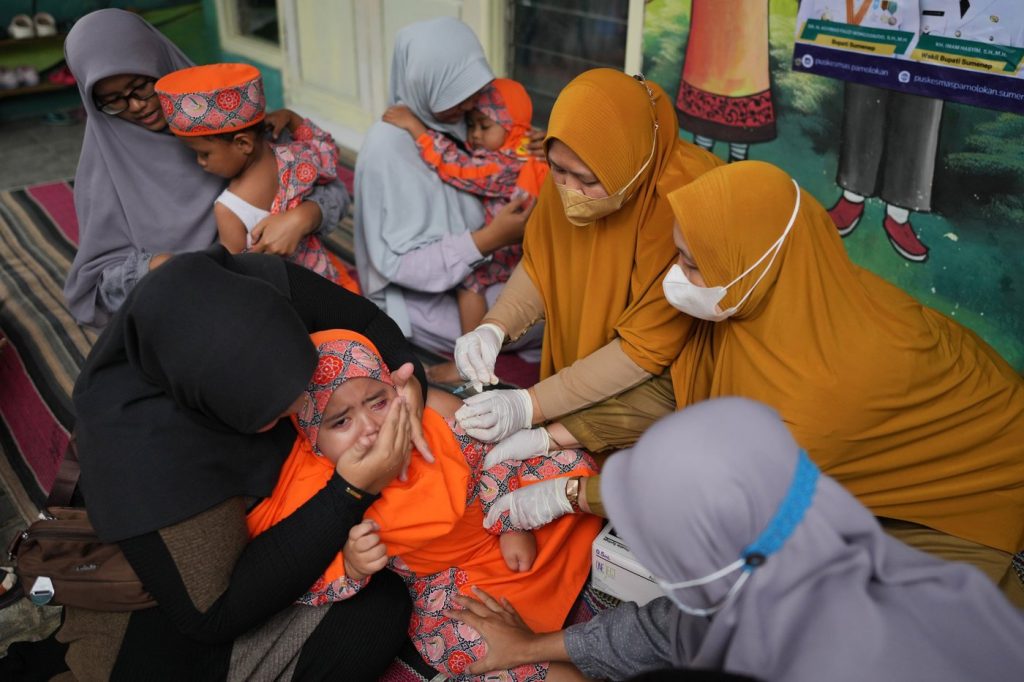In Sumenep, Indonesia, health workers are actively delivering measles vaccines as part of an urgent campaign to curtail a prolonged outbreak on Madura Island. This outbreak, which has persisted for nine months, has led to over 2,600 reported cases of measles among children this year alone, resulting in 20 fatalities. The government and health organizations are mobilizing resources to address the crisis and improve vaccination rates within the community.
One significant challenge the vaccination effort faces is hesitancy stemming from concerns regarding the halal status of the vaccine. Certain vaccines include a stabilizer derived from pigs, which is problematic for many in the predominantly Muslim population of Indonesia. Some Islamic scholars have stated that the use of such vaccines may be permissible under specific conditions, yet skepticism among parents and community members remains high. This has further complicated the already urgent public health response to the outbreak.
Indonesia, recognized as the world's largest Muslim-majority nation, has historically faced issues regarding vaccination coverage, contributing to past outbreaks of measles. The current situation underscores the necessity for increased public health education and outreach to ensure that parents are informed about the safety and efficacy of vaccines, especially in the context of religious beliefs and health practices.
Health workers in Sumenep are implementing house-to-house vaccination campaigns, attempting to reach as many children as possible before the outbreak spreads further. The vaccination events are also accompanied by educational campaigns aimed at informing parents about the importance of measles vaccination and addressing their concerns directly. Documentation from these events includes images of health workers administering vaccines, parents waiting with their children, and community health officials engaging with families to foster trust and openness about the vaccination process.
In addition to vaccinations, local hospitals, such as Moh Anwar Hospital in Sumenep, are managing cases of measles, including keeping patients in isolated wards to prevent further contagion. The healthcare teams are equipped to handle the necessary medical needs of those affected while also working to assure the community that the health risks associated with measles are far more severe than the potential objections concerning vaccine ingredients.
The efforts in Sumenep reflect broader challenges faced in many regions where vaccine acceptance is hindered by religious, cultural, or misinformation barriers. Health officials are committed to overcoming these obstacles through transparent communication and community involvement, reinforcing the message that immunization is critical for the well-being of children and the health of the community at large.










